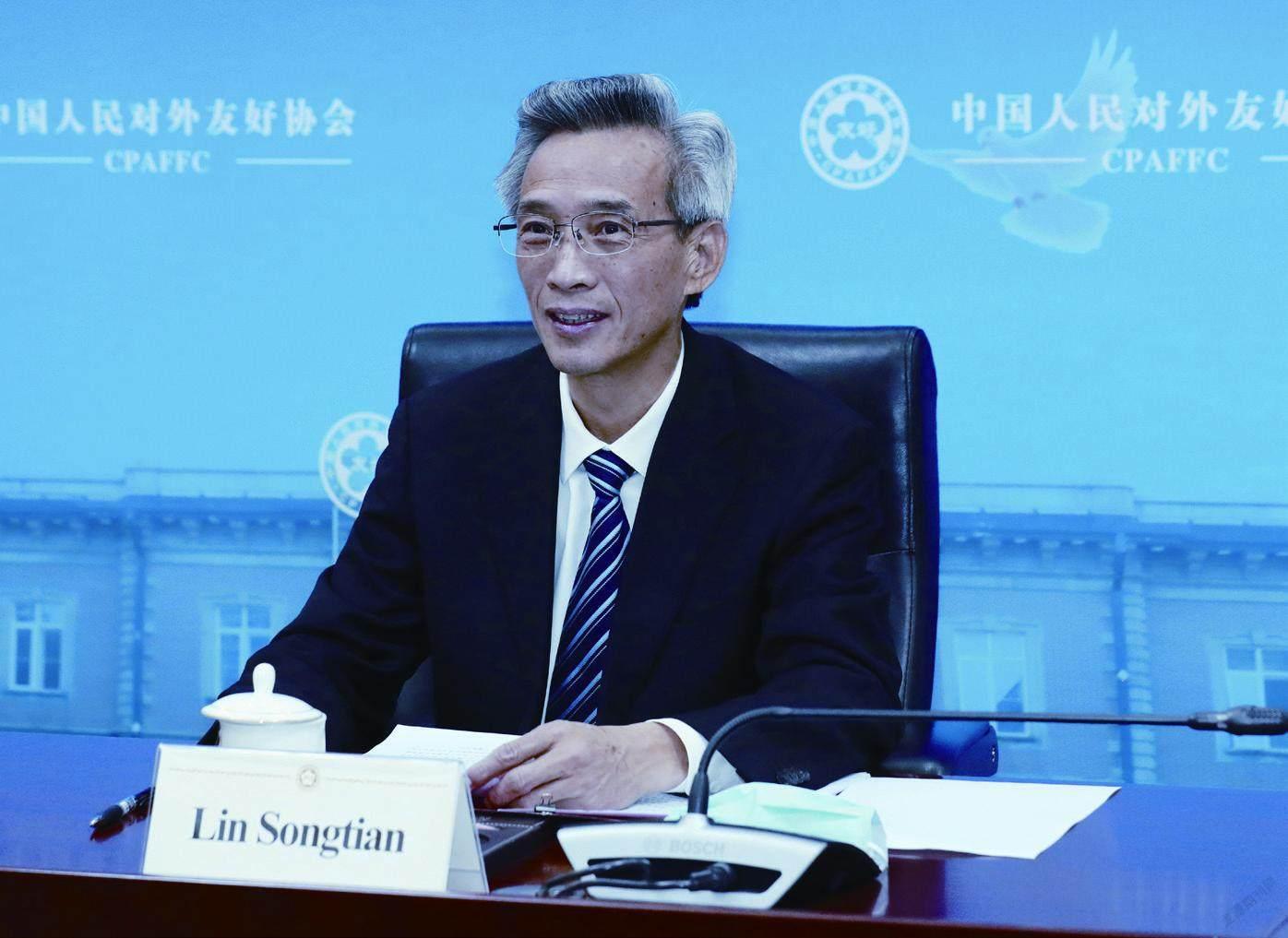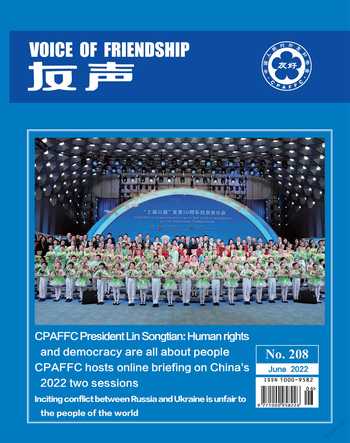2022 US-China Agriculture Roundtable a success
Zhang Yang
O n March 22, the Chinese People’s Association for Friendship with Foreign Countries and the United States Heartland China Association cohosted the 2022 US-China Agriculture Roundtable forum online.
Nearly 100 guests from all walks of life in China and the United States attended the event online. Opening remarks were made, online or via recorded video, by Lin Songtian, president of the CPAFFC; Qin Gang, Chinese ambassador to the US; Bob Holden, chairman and CEO of the USHCA and former governor of Missouri; Ken Quinn, strategic adviser to the USHCA and president emeritus of World Food Prize Foundation; David Meale, charge d’affaires of the US embassy in China; Jason Hafemeister, acting deputy under-secretary of the US Department of Agriculture; and Darin LaHood, congressman of Illinois.
Lin said spring is the time to sow the seeds of hope. “Last Friday, Chinese President Xi Jinping and US President Joe Biden had a candid and constructive video call,” he said. “It is timely to hold the second forum today, with the hope that it can bring a warm current of spring to the chilly ChinaUS relations and help drive the relations back on track.”
Not long ago, Lin said, a series of commemorative activities were held in Shanghai on the 50th anniversary of the issuance of the Shanghai Communique. The event generated three inspirations, he said.
First, the Chinese and American people have always been friendly to each other. It is in the common interests of the two countries and two peoples to maintain and develop the friendly cooperative relations. Despite the continued deterioration of international geopolitics and bilateral relations, China-US economic and trade cooperation remained strong last year, with the total value of trade in goods rising by 28.7 percent. Of that, China’s agricultural imports from the US accounted for about one-fifth of total US agricultural exports, making China the largest importer of American agricultural products.
Second, China and the US are capable of coexisting peacefully and achieving common development, as long as both sides uphold the principle of mutual respect and seeking common ground while shelving differences.
Third, China and the US need to draw on each other’s strengths in exchanges and cooperation. There is huge potential and a promising future for cooperation between the two sides. When the Chinese people’s demand for a better life meets the supply of highquality agricultural products from the US, it will generate huge development opportunities for American farmers and unlimited space for China-US cooperation.
Lin hoped that both sides would take the forum as an opportunity to have candid exchanges, tap the potential of mutually beneficial cooperation in agricultural imports and exports, cross-border e-commerce, green agriculture, agricultural science and technology innovation and other fields to deepen cooperation and mutual trust between the two countries and make positive contribution to the sound development of China-US relations.
Qin Gang said in his video remarks: “As a highlight of pragmatic China-US cooperation, agricultural cooperation is well-grounded and highly complementary between our two countries. Since the phaseone trade deal was signed in 2020, China has been faithfully fulfilling its agricultural procurement commitment. As a result, our agricultural trade registered a quick comeback.
“Agricultural cooperation best explains the win-win nature of our economic and trade relations. It also speaks to our highly complementary economic structures and deeply intertwined interests. Deeper agricultural cooperation will not only benefit both countries’ agriculture and people but will also carry strong significance for global food security and agricultural development.”

Holden said: “When we launched the first Agriculture Roundtable a year ago — in the middle of the pandemic and at a time of significant transition and turmoil in our country — I was encouraged to see that there was broad bipartisan US support for, and participation in, our forum. This was based on a common perception of the importance of increased agricultural exports from the American heartland to China.
“We all come from vastly different backgrounds and beliefs, but we share a common goal in helping guide our world toward a better and more productive future.
“The world today faces three major challenges: food security, climate change and the pandemic. For our planet to survive, we must have open dialogue, common purpose and wise leadership from every country in the years ahead.”
Hafemeister noted that the US and China are among each other’s most important agricultural partners. The two sides are maintaining strong trade ties. Last year, US agricultural exports to China increased significantly. Hafemeister said he believed that through joint efforts, China’s agricultural import market will continue to grow and the common interests of both countries will continue to expand.
After the opening ceremony, heads of agricultural departments of Chinese provinces and US states, such as Hubei, Henan, Oklahoma and Kansas, as well as representatives of agricultural enterprises and trade associations, introduced the fruitful achievements of agricultural cooperation between the two countries in the past decades from different aspects.
They agreed that China-US agricultural cooperation had brought tangible benefits to the two peoples and provided an important basis for bilateral exchanges and cooperation in other areas. They also agreed the two sides should resolve existing problems through dialogue and communication, deepen bilateral agricultural cooperation and jointly contribute to world food security and sustainable agricultural development.
Concluding the program, the Iowa High School Choir performed a Chinese song recorded during this year’s Chinese Lunar New Year — Love Keeps Everlasting Memories — which tells the story of friendship between Iowa and China. The event ended with a warm and positive atmosphere.
The forum consisted of three sections: enterprise dialogue, education dialogue and think tank dialogue.
- Voice Of Friendship的其它文章
- Thomas Rabe:Four generations of friendship
- Sister-city friendship flows across young hearts
- Neither mountains nor seas can separate people of common goals and ideals
- Sister cities at 40,always young at heart
- Grasp the opportunities of the Asian century;practice the spirit of“Asia is One Family”
- Amity torch project

